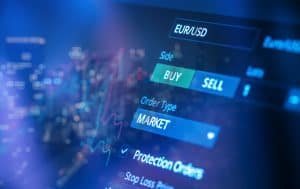 Buy-side and sell-side trading practices currently used to trade exchange-traded funds (ETFs) are limiting growth in the industry, according to a new study.
Buy-side and sell-side trading practices currently used to trade exchange-traded funds (ETFs) are limiting growth in the industry, according to a new study.
Greenwich Associates found that many institutional investors, equity broker-dealers and market makers currently deploy the same methods for trading ETFs as for equities, but this often leads to suboptimal executions.
Many investors are using the same approach to trade ETFs as for other asset classes with algorithms and transaction cost analysis (TCA) systems that have been designed for single stock trading, not necessarily for ETFs.
Furthermore, despite trading on-exchange, fixed income ETFs, which have spearheaded the growth in ETFs in recent years, move like the bond market. As such, equity traders are often out of their comfort zone when working with the instrument.
The report claimed that ETFs should be treated as a separate asset class from equities, derivatives or fixed income in order to improve execution quality and ramp up client commissions.
“Today, the same execution algorithm used to trade IBM is often used to then trade high-yield bond ETFs,” said Kevin McPartland, head of research for Greenwich Associates market structure and technology, and author of the report.
“While these instruments both trade in the US equity market, the reasons they trade and the way their prices are determined are completely different. For institutional use of ETFs to grow and mature, long-held structures for managing clients and trading products need to change.”
Greenwich Associates’ urged traders and portfolio managers to look at all products available in the market and not just those that they are comfortable with, adding that broker-dealer sales teams should also be able to offer clients access to the right instrument.
Earlier this year, ETF market participants and industry experts told delegates at an event that growth in the market is also threatened by the lack of a consolidated tape. Speakers argued that the level of visibility on trading volumes is the biggest obstacle to ETF growth as it limits price formation.
Registration is now open for The TRADE’s free-to-attend afternoon event, ETF Forum, on 25 September at The HAC in London, which offers a series of in-depth panel discussions focusing on the most important issues in the ETFs space.